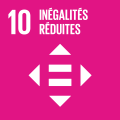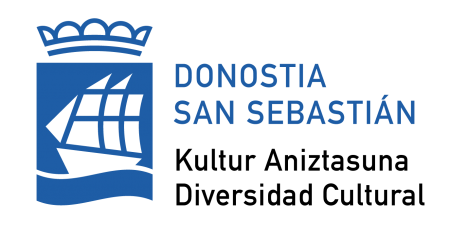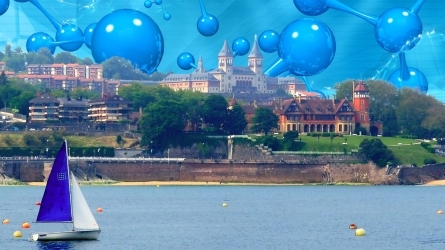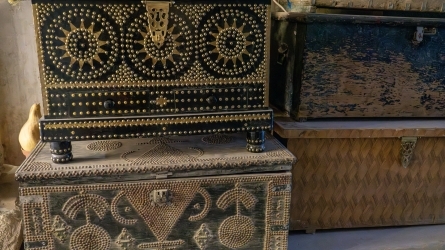
The future is already here: challenges and opportunities of coexistence in diversity
Description
In democratic societies, living together in diversity is a reality that reflects a progressive process of acquisition of rights by all citizens. The challenge is to recognise this diversity and, at the same time, to consolidate itself as a cohesive society. In democratic societies, respecting plurality is not only an element of development and stability, but also a question of legality, principles and guiding values. Ensuring social cohesion means accepting the existence of differences, but also a commitment to ensure that these differences do not degenerate into inequalities.
The cities around us are already diverse: it is not a temporary phenomenon, but a key sign of identity for understanding life in the city and in the neighbourhoods. The future is already here, and it is essential to stop to reflect, to go deeper, to train, to work to manage socio-demographic changes by adapting to the complexities and taking advantage of opportunities from an intercultural perspective.
The intercultural city is based on respect for the inherent human rights of each person in a context of equality, promotes respect for diversity, recognises its positive value, and encourages positive interaction to guarantee a coexistence that facilitates development and social cohesion.
This course aims to contribute to an awareness of the diverse reality of the cities around us; to identify and address the main challenges of the intercultural city; to develop a better understanding of the diversity of the city and its surroundings; and to promote the development and social cohesion of the city and its inhabitants.
Objectives
Reflect on the diverse reality of the cities around us.
Identify and address some of the main challenges of the intercultural city, proposing good practices at national and international level: reception, interaction, social and political participation, mainstreaming and inclusive public services, public space...
To study in depth the specific realities of women and young people from diverse backgrounds.
To train students in competences, narratives and actions to promote interculturality.
Activity directed to
- All public
- University student
- Students not from university
- Professionals
Organised by
Program
12-09-2024
Presentation by the Director of the activity
- Silvia Carballo Paz | Ayuntamiento de Donostia / San Sebastián - Jefa de sección de Diversidad Cultural y directora del curso
“Migrazioaren errealitatea Euskadin: tokiko ikuspegia“
- Xabier Aierdi Urraza | UPV/EHU - Profesor de Sociología y presidente de Begirune Fundazioa
Break
“Ponencia marco. Un futuro que ya está aquí: las ciudades del siglo XXI“
- Eduardo Ruiz Vieytez | Universidad de Deusto - Vicerrector de Estrategia Universitaria y experto en derechos humanos y diversidad cultural, lingüística, étnica y religiosa
“Cuatro retos de la ciudad intercultural: acogida, interacción, participación, transversalidad“
- Gemma Pinyol-Jiménez | Consejo de Europa / Red de Ciudades Interculturales (RECI) - Experta del Consejo de Europa/Intercultural Citiesy coordinadora de RECI. Directora de políticas migratorias y diversidad en Instrategies e investigadora asociada del GRITIM-UPF
Round table: “Encuentro en la mesa de los ponentes de la mañana, turno de preguntas y debate con moderación de la directora del curso.“
- Silvia Carballo Paz | Ayuntamiento de Donostia / San Sebastián - Jefa de sección de Diversidad Cultural y directora del curso (Moderator)
- Eduardo Ruiz Vieytez | Universidad de Deusto - Vicerrector de Estrategia Universitaria y experto en derechos humanos y diversidad cultural, lingüística, étnica y religiosa
- Gemma Pinyol-Jiménez | Consejo de Europa / Red de Ciudades Interculturales (RECI) - Experta del Consejo de Europa/Intercultural Citiesy coordinadora de RECI. Directora de políticas migratorias y diversidad en Instrategies e investigadora asociada del GRITIM-UPF
Break
“Taller práctico: competencias, narrativas y acciones para promover la interculturalidad“
- Daniel de Torres Barderi | Consejo de Europa/Red de Ciudades Interculturales (RECI) - Experto del Consejo de Europa/Intercultural Cities y director de RECI/ profesor de la Universidad Pompeu Fabra
- Gemma Pinyol-Jiménez | Consejo de Europa y Red de Ciudades Interculturales (RECI) - Experta del Consejo de Europa/Intercultural Citiesy coordinadora de RECI. Directora de políticas migratorias y diversidad en Instrategies e investigadora asociada del GRITIM-UPF
13-09-2024
“Rethinking public space for intercultural coexistence“
- Lea Lewitan | Placemaking Europe network - Experta en urbanismo y diversidad cultural
“La extranjerización de la otra. Jóvenes en la ciudad futura“
- Hajar Samadi
Break
Round table: “Diálogo. Las mujeres construyendo ciudad intercultural: transmisión cultural, cuidados, empleo.“
- Samira Goddi Mendizabal | Experta en diversidad cultural (Moderator)
- Heldy Soraya Ronquillo Peña | Asociación Bidez Bide - Trabajadora social
- Jeanne-Rolande Dacougna Minkette | Biltzen (Servicio Vasco de Integración y Convivencia Intercultural) - Técnica de intervención social
Round table: “Encuentro en la mesa de las ponentes de la mañana, turno de preguntas y debate con moderación de la directora del curso.“
- Silvia Carballo Paz | Ayuntamiento de Donostia / San Sebastián - Jefa de sección de Diversidad Cultural y directora del curso (Moderator)
- Lea Lewitan | Placemaking Europe network - Experta en urbanismo y diversidad cultural
- Hajar Samadi
- Samira Goddi Mendizabal | Experta en diversidad cultural
- Heldy Soraya Ronquillo Peña | Asociación Bidez Bide - Trabajadora social
- Jeanne-Rolande Dacougna Minkette | Biltzen (Servicio Vasco de Integración y Convivencia Intercultural) - Técnica de intervención social
Closing session
- Silvia Carballo Paz | Ayuntamiento de Donostia / San Sebastián - Jefa de sección de Diversidad Cultural y directora del curso
Directors

Silvia Carballo Paz
Donostia/San Sebastián City Council
Speakers

Xabier Aierdi Urraza
Begirune Fundazioa
Ha sido Profesor titular en la Licenciatura de Sociología en la UPV/EHU. Doctor en Sociología por la Universidad de Deusto (1991). Cursó la Licenciatura de Periodismo en la Facultad de Ciencias de la Información de la UPV/EHU (1984). Ha sido Director del Departamento de Sociología de la UPV/EHU, Presidente de la Asociación Vasca de Sociología, Vicepresidente de la Ejecutiva de la FES (Federación Española de Sociología). Asesor en el Departamento de Empleo y Políticas Sociales del Gobierno Vasco de octubre de 2013 a noviembre de 2016. Fundó con Cristina Blanco el Observatorio Vasco de Inmigración, IKUSPEGI, y fue su Director desde Diciembre de 2003 hasta Enero de 2011. En Febrero de 2011 fundó, junto con José Antonio Oleaga, el Laboratorio de Investigación en Inmigración, BEGIRUNE. Miembro del Grupo de Investigación reconocido por la UPV/EHU CIVERSITY y de la Comisión de Doctorado de Hegoa. Es miembro de ZAS! Zurrumurren Aurkako Sarea/ Red Vasca Antirrumores y ha refundado Begirune.

Silvia Carballo Paz
Donostia/San Sebastián City Council
Jeanne-Rolande Dacougna Minkette
Investigadora, consultora y defensora de derechos humanos. Doctora en Estudios e Investigación sobre las Mujeres, Feministas y de Género (Jaume I y Miguel Hernández). Con 19 años de experiencia como técnica superior de intervención social en Biltzen desarrollando actividad de formación y asesoría a profesionales de diversos ámbitos de la administración pública vasca y de organizaciones sociales. Experta en migraciones internacionales y gestión de la diversidad cultural; feminismos, decolonialidad y antirracismo; empoderamiento y participación de las mujeres migradas y racializadas. Ha recibido en 2014 el VI Premio de Investigación "Presen Sáez de Descatllar", en la modalidad de Trabajos de Fin de Máster. Publicaciones: Dacougna, J.R. (2016) Aproximaciones interdisciplinares al estudio de las migraciones. En A. Téllez, J. E. Martinez y B. de Maya (Eds.), Enfoques socioculturales sobre el mundo actual. Elche: Universidad Miguel Hernández de Elche. Dacougna, J.R. y Téllez, A. (2016) Cartografía de una migración. Mujeres africanas en Euskadi: identidades y empoderamiento. Lurralde, 39, 15-42. Dacougna, J.R. y Téllez, A. (2015) Discursos y percepciones. Mujeres africanas migrantes redefiniéndose. Revista Nuevas Tendencias en

Daniel de Torres Barderi

Samira Goddi Mendizabal
Samira Goddi Mendizabal (1984) Donostia Licenciada en publicidad y relaciones públicas (EHU) Licenciada en antropología social y cultural ... Titulo propio en mediación social intercultural (UAM) Titulo propio en investigación social en contextos de alta diversidad (UAM) ... En la actualidad técnica en la subárea de diversidad cultural, cooperación para el desarrollo y derechos del Ayuntamiento de Errenteria. Anteriormente ha trabajado realizando acompañamientos sociales a población migrante así como en distintos ayuntamientos en el ámbito social.

Lea Lewitan
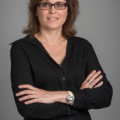
Gemma Pinyol-Jiménez
Head of Migration Policies and Diversity and associate researcher at GRITIM-UPF. She is also an expert on migration and diversity management for the Intercultural Cities project at Council of Europe and coordinator of the RECI-Spanish Network of Intercultural Cities. She has been served as Head of Cabinet of the Spanish State Secretary of Immigration and Emigration and as project manager in the C4i- Communication for Integration project at the Council of Europe. Her main areas of interest are the Spanish and EU migration instruments, as well as the multilevel governance of migration, asylum and integration issues. She holds a degree in Political Science from the Autonomous University of Barcelona, a MA in International Studies and a MA in Political Analysis.

Heldy Soraya Ronquillo Peña
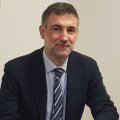
Eduardo Ruiz Vieytez
Dr. Eduardo J. Ruiz Vieytez is professor of Constitutional Law at University of Deusto (Bilbao), where he has acted as dean of the Faculty of Social and Human Sciences, and previously as director of the Human Rights Institute. He has been legal adviser of the Basque Ombudsman and the president of an NGO working in the promotion of immigrants’ rights in the Basque Country. He has also been a member of the Spanish Council for Integration of Migrants (a consultative body of the Spanish Government), and participated in several missions of the Council of Europe concerning minorities. His fields of research are integration policies, national conflicts, minority rights and the relation between human rights and religious, linguistic and cultural diversity. Among other responsibilities, Dr. Ruiz Vieytez has been a member of the board of directors of the IMISCOE network and of the board of the International Institute for the Sociology of Law (Oñati, Basque Country).
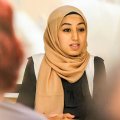
Hajar Samadi
Asociacion mujeres musulmanas Bidaya
Hajar Samadi es trabajadora social, activista y cofundadora de la asociación mujeres musulmanas bidaya (www.musulmanasbidaya.org), también es miembro de la comisión asesora ADOS del gobierno vasco. Su activismo se centra en la defensa de los derechos humanos, especialmente en temas relacionados con la diversidad cultural y la discriminación racial e islamofobia de género, desde una perspectiva decolonial.
Registration fees
| Face-to-face | Until 12-09-2024 |
|---|---|
| 50,00 EUR | |
| 25,00 EUR | |
| 25,00 EUR | |
| 0 EUR | |
| 0 EUR |
Venue
Miramar Palace
Pº de Miraconcha nº 48. Donostia / San Sebastián
Gipuzkoa
Miramar Palace
Pº de Miraconcha nº 48. Donostia / San Sebastián
Gipuzkoa
Sustainable development goals
Agenda 2030 is the new international development agenda approved in September 2015 by the United Nations. This agenda aims to be an instrument to favour sustainable human development all over the planet, and its main pillars are the eradication of poverty, a reduction in equality and vulnerability and fostering sustainability. It is a unique opportunity to transform the world up to 2030 and guarantee human rights for all.

10 - Reduced inequalities
Reduce inequality in countries and between them. Key issues: promotion of the social, economic and political inclusion of all people, equal opportunities, fiscal, wage and social protection policies to favour equality, migration and the policies that affect it, official assistance for the development, regulation and supervision of world institutions and markets.
More information